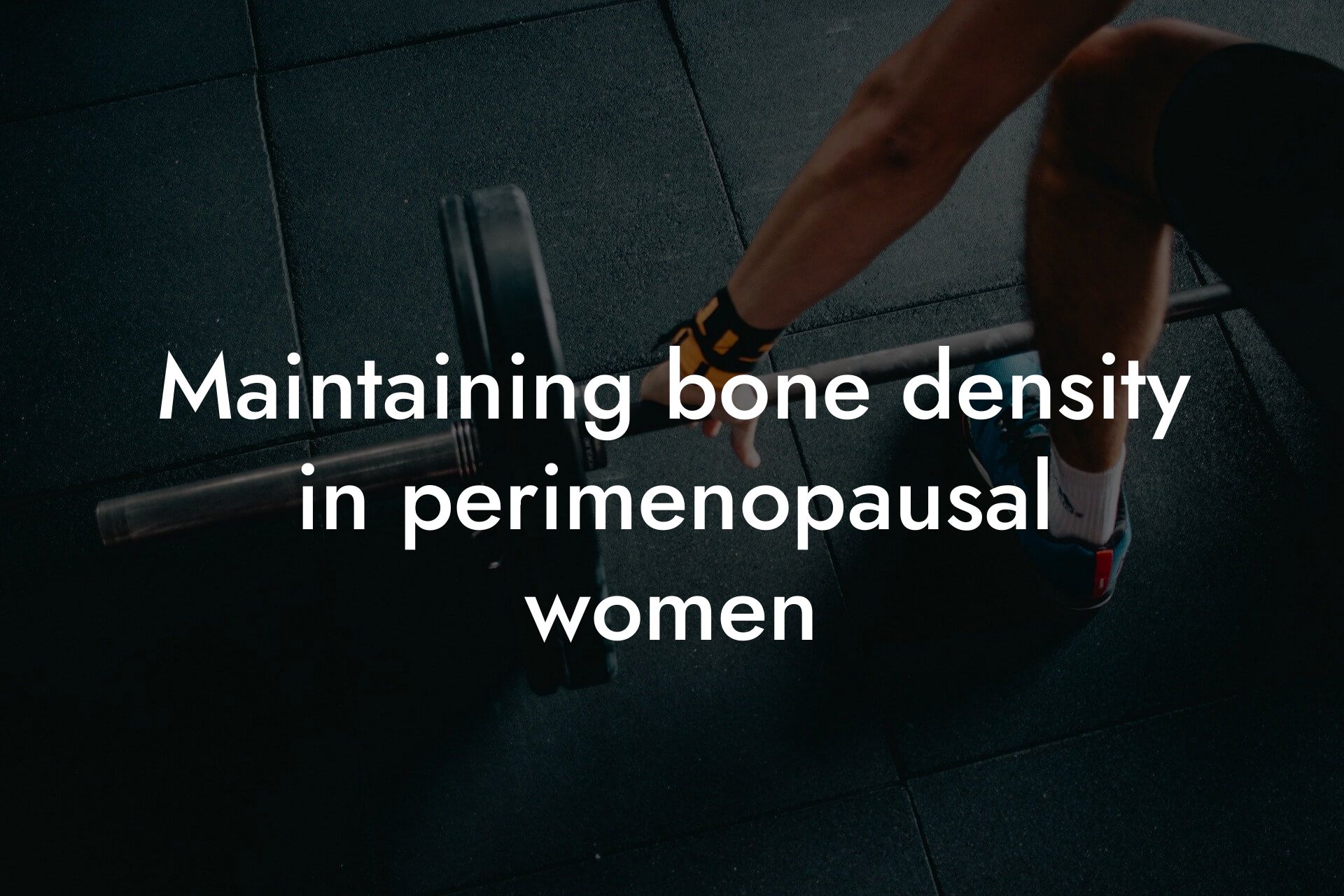As an older professional, it's essential to prioritize your physical health to maintain your overall well-being and continue performing at your best. A well-structured fitness program can help you achieve your goals, improve your physique, and boost your confidence. At Tano Performance Group, we understand the unique challenges and needs of high-earning professionals like yourself, and we're committed to providing you with the information and tools you need to succeed.
Table of Contents
Why Fitness is Crucial for Older Professionals
As we age, our bodies undergo a range of changes that can impact our physical performance and overall health. Metabolism slows down, muscle mass decreases, and bone density can decline, making it more challenging to maintain a healthy weight, build strength, and prevent injuries. Additionally, a sedentary lifestyle can exacerbate these issues, leading to decreased energy levels, reduced mobility, and a higher risk of chronic diseases.
However, incorporating a fitness program into your lifestyle can help mitigate these effects and improve your overall health. Regular exercise can:
- Boost metabolism and energy levels
- Build and maintain muscle mass and bone density
- Enhance cardiovascular health and reduce the risk of chronic diseases
- Improve flexibility, mobility, and balance
- Support weight management and reduce body fat
- Enhance mental clarity, focus, and overall well-being
Challenges Faced by Older Professionals
As an older professional, you may face unique challenges that can make it difficult to establish and maintain a fitness routine. These may include:
- Busy schedules and limited time for exercise
- Injuries or chronic health conditions that require special consideration
- Decreased energy levels and mobility
- Lack of motivation or accountability
- Unfamiliarity with exercise routines and nutrition plans
Benefits of a Structured Fitness Program
A well-structured fitness program can help you overcome these challenges and achieve your goals. Some benefits of a structured program include:
- Personalized guidance and support from a qualified trainer or coach
- Customized exercise routines tailored to your needs, goals, and fitness level
- Accountability and motivation through regular check-ins and progress tracking
- Education on proper nutrition, hydration, and recovery techniques
- Improved overall health and well-being
Components of a Comprehensive Fitness Program
A comprehensive fitness program for older professionals should include a combination of the following components:
- Resistance training to build and maintain muscle mass and bone density
- Cardiovascular exercise to improve heart health and increase energy levels
- Flexibility and mobility exercises to enhance range of motion and reduce injury risk
- Balance and coordination training to improve overall functional fitness
- Nutrition planning and education to support weight management and overall health
- Recovery techniques, such as stretching, foam rolling, and self-myofascial release
How DEXA Scans Can Inform Your Fitness Program
At Tano Performance Group, we use DEXA (Dual-Energy X-ray Absorptiometry) scans to provide a comprehensive body assessment, including measurements of body fat percentage, lean mass, bone density, and other key health metrics. This information can be used to:
- Identify areas for improvement and track progress over time
- Develop a personalized fitness program tailored to your specific needs and goals
- Monitor the effectiveness of your nutrition and exercise plan
- Make data-driven decisions to optimize your overall health and fitness
Creating a Sustainable Fitness Habit
Establishing a sustainable fitness habit requires commitment, consistency, and patience. Here are some tips to help you create a lasting routine:
- Start small and gradually increase the intensity and duration of your workouts
- Schedule your workouts and treat them as non-negotiable appointments
- Find an exercise routine that you enjoy and look forward to
- Track your progress and celebrate small victories along the way
- Seek support from a fitness community, trainer, or workout buddy
As an older professional, incorporating a fitness program into your lifestyle can have a profound impact on your overall health, well-being, and performance. By understanding the challenges and benefits of a structured fitness program, and leveraging the power of DEXA scans to inform your approach, you can achieve your goals and maintain a healthy, active lifestyle. At Tano Performance Group, we're committed to helping you every step of the way.
Frequently Asked Questions
What is the importance of fitness programs for older professionals?
As we age, our bodies undergo natural changes that can affect our physical performance and overall health. Fitness programs specifically designed for older professionals can help combat these changes, improving flexibility, strength, and cardiovascular health. This can lead to increased energy levels, better sleep, and a reduced risk of chronic diseases, ultimately enhancing the quality of life.
Why is it essential for older professionals to prioritize fitness?
Older professionals often have demanding careers, family responsibilities, and social commitments, which can lead to a sedentary lifestyle. Regular exercise can help mitigate the negative effects of a busy schedule, reducing stress and anxiety while improving mental clarity and focus. By prioritizing fitness, older professionals can maintain their physical and mental well-being, ensuring they can continue to perform at their best.
What are the benefits of group fitness classes for older professionals?
Group fitness classes offer a social and supportive environment, which can be particularly beneficial for older professionals. They provide an opportunity to meet like-minded individuals, build relationships, and stay motivated. Additionally, group classes can help improve accountability, as participants are more likely to attend classes and push themselves harder when surrounded by others.
How can fitness programs help improve bone density in older professionals?
Regular exercise, especially weight-bearing and resistance training, can help improve bone density in older professionals. This is particularly important, as osteoporosis and osteopenia are common concerns for this age group. By incorporating exercises that target bone health, older professionals can reduce their risk of fractures and osteoporosis-related injuries.
What types of exercises are suitable for older professionals with joint pain or injuries?
Older professionals with joint pain or injuries can still engage in exercise programs that cater to their needs. Low-impact activities like yoga, Pilates, or swimming can be modified to accommodate joint issues. Additionally, exercises that focus on strengthening the surrounding muscles can help alleviate pain and improve joint stability.
Can older professionals still achieve significant weight loss through fitness programs?
Absolutely! While metabolism may slow down with age, a well-structured fitness program can still help older professionals achieve significant weight loss. A combination of regular exercise, healthy nutrition, and lifestyle changes can lead to sustainable weight loss and improved body composition.
How often should older professionals exercise to see noticeable results?
The American Heart Association recommends at least 150 minutes of moderate-intensity aerobic exercise or 75 minutes of vigorous-intensity aerobic exercise per week. For older professionals, it's essential to start slowly and gradually increase frequency and intensity to avoid injury or burnout. Aim for 2-3 times per week, with at least one day of rest in between.
What role does nutrition play in fitness programs for older professionals?
Nutrition is a critical component of any fitness program, particularly for older professionals. A balanced diet that includes lean protein, complex carbohydrates, and healthy fats can help support muscle growth, energy levels, and overall health. Adequate hydration is also essential for optimal physical performance.
How can older professionals stay motivated and consistent with their fitness programs?
Staying motivated and consistent can be a challenge for anyone, but especially for older professionals with busy schedules. Find an exercise buddy, set realistic goals, and track progress to stay motivated. Celebrate small victories, reward yourself for milestones achieved, and don't be too hard on yourself when you encounter setbacks.
What are the benefits of working with a personal trainer or fitness coach?
A personal trainer or fitness coach can provide customized guidance, support, and accountability, helping older professionals achieve their fitness goals more efficiently. They can also help modify exercises to accommodate physical limitations, provide nutrition advice, and offer motivation and encouragement.
Can older professionals still build muscle mass through resistance training?
Yes, older professionals can still build muscle mass through resistance training. While muscle mass naturally declines with age, regular resistance exercises can help slow down this process and even rebuild muscle tissue. This is especially important for maintaining functional ability and reducing the risk of falls and injuries.
How can fitness programs help improve sleep quality in older professionals?
Regular exercise can help improve sleep quality in older professionals by reducing stress and anxiety, regulating body temperature, and increasing melatonin levels. Additionally, exercise can help improve sleep duration and depth, leading to better rest and recovery.
What are the benefits of incorporating high-intensity interval training (HIIT) into fitness programs?
HIIT involves short bursts of high-intensity exercise followed by brief periods of rest. This type of training can be particularly beneficial for older professionals, as it improves cardiovascular health, increases caloric burn, and enhances insulin sensitivity, all while being time-efficient.
Can older professionals still engage in high-impact activities like running or jumping?
While high-impact activities can be beneficial for cardiovascular health, they may not be suitable for older professionals with joint issues or other health concerns. However, modified versions of high-impact exercises, such as water-based activities or low-impact aerobics, can provide similar benefits while reducing the risk of injury.
How can fitness programs help improve cognitive function in older professionals?
Exercise has been shown to improve cognitive function in older adults by promoting blood flow to the brain, reducing inflammation, and stimulating the growth of new neurons. Regular physical activity can help improve memory, concentration, and processing speed, reducing the risk of age-related cognitive decline.
What are the benefits of incorporating flexibility and stretching exercises into fitness programs?
Flexibility and stretching exercises can help improve range of motion, reduce muscle tension, and enhance overall mobility. This is particularly important for older professionals, as it can help reduce the risk of injury, improve posture, and enhance functional ability.
Can older professionals still achieve athletic performance goals through fitness programs?
Absolutely! While age may affect physical performance, a well-structured fitness program can help older professionals achieve athletic performance goals, such as completing a marathon or competing in a sport. It's essential to set realistic goals, listen to your body, and work with a qualified coach or trainer.
How can fitness programs help improve mental health in older professionals?
Regular exercise has been shown to reduce symptoms of anxiety and depression, improve mood, and enhance overall mental well-being. Fitness programs can provide a sense of accomplishment, social connections, and stress relief, all of which are essential for maintaining good mental health.
What are the benefits of incorporating balance and coordination exercises into fitness programs?
Balance and coordination exercises can help improve functional ability, reduce the risk of falls, and enhance overall mobility. This is particularly important for older professionals, as it can help them maintain independence and perform daily tasks with confidence.
Can older professionals still engage in team sports or group activities?
Absolutely! Many team sports and group activities, such as tennis, cycling, or swimming, can be modified to accommodate older professionals. These activities provide social interaction, accountability, and a sense of community, all while improving physical fitness and overall health.
How can fitness programs help improve overall health and well-being in older professionals?
Fitness programs can help improve overall health and well-being in older professionals by reducing the risk of chronic diseases, improving physical function, and enhancing mental health. Regular exercise can also improve sleep quality, increase energy levels, and enhance overall quality of life.
What are the benefits of working with a fitness community or support group?
Working with a fitness community or support group can provide accountability, motivation, and social support, all of which are essential for achieving fitness goals. These communities can offer valuable resources, such as workout buddies, nutrition advice, and progress tracking, to help older professionals stay on track and reach their full potential.
Here are some related articles you might love...
- Body composition considerations for vegetarian athletes
- Maintaining bone density in perimenopausal women
- Fitness tips for pregnant professionals
- Tailored fitness programs for executives
- The unique challenges of maintaining fitness in high-stress jobs
- How cultural differences impact body composition goals
- How to manage body composition after childbirth
- Fitness and nutrition strategies for shift workers
- Body composition strategies for women in leadership
Zak Faulkner
Zak Faulkner is a leading authority in the realm of physical health and body composition analysis, with over 15 years of experience helping professionals optimise their fitness and well-being. As one the experts behind Tano Performance Group, Zak has dedicated his career to providing in-depth, science-backed insights that empower clients to elevate their physical performance and overall health.
With extensive knowledge of DEXA technology, Zak specializes in delivering comprehensive body assessments that offer precise data on body fat, muscle mass, bone density, and overall physique. His expertise enables individuals to make informed decisions and achieve their fitness goals with accuracy and confidence. Zak’s approach is rooted in a deep understanding of human physiology, combined with a passion for helping clients unlock their full potential through personalised strategies.
Over the years, Zak has earned a reputation for his commitment to excellence, precision, and client-focused service. His guidance is trusted by top professionals who demand the best when it comes to their health. Whether advising on fitness programs, nutritional strategies, or long-term wellness plans, Zak Faulkner’s insights are a valuable resource for anyone serious about taking their health and fitness to the next level.
At Tano Performance Group, Zak continues to lead our Content Team revolutionising how professionals approach their physical health, offering unparalleled expertise that drives real results.




